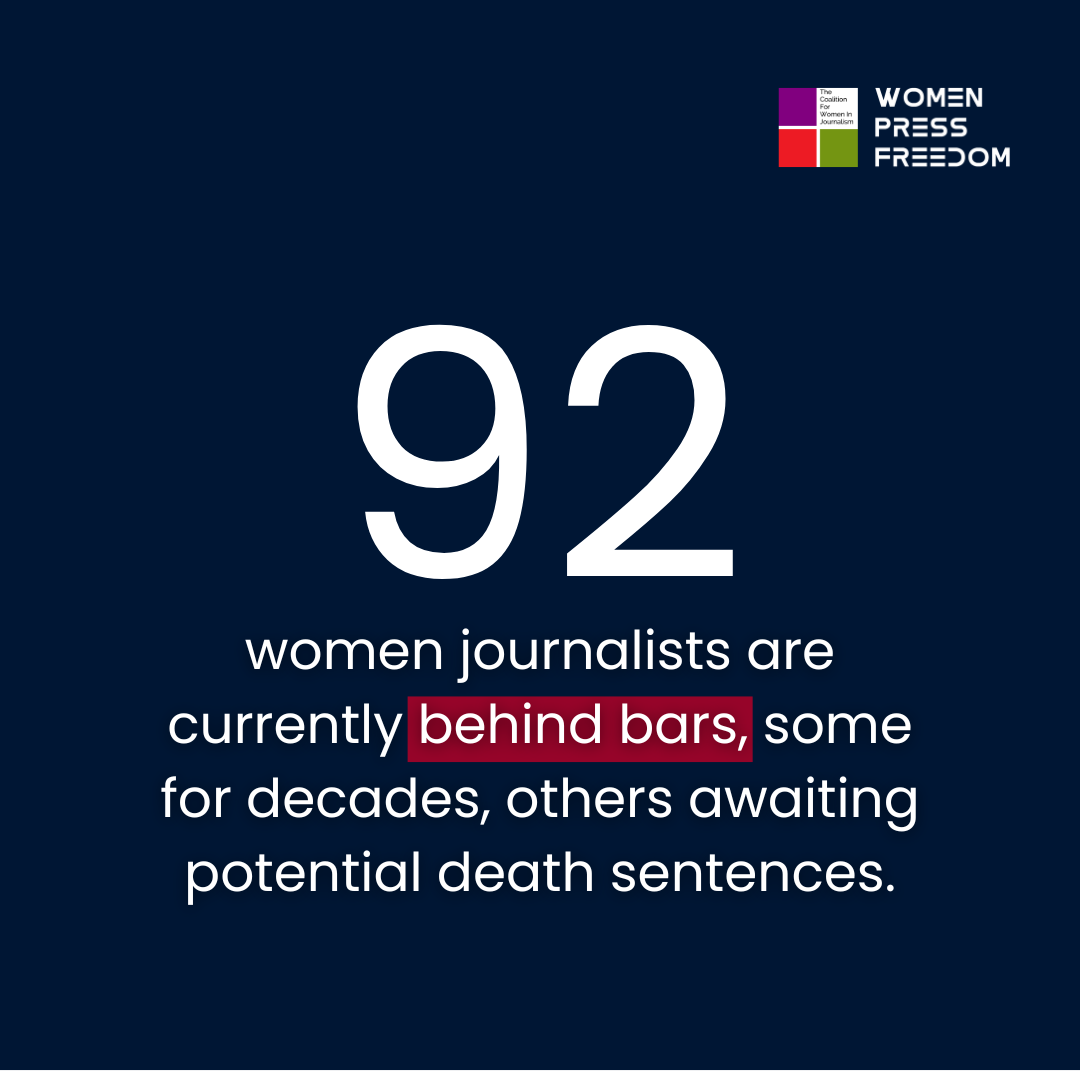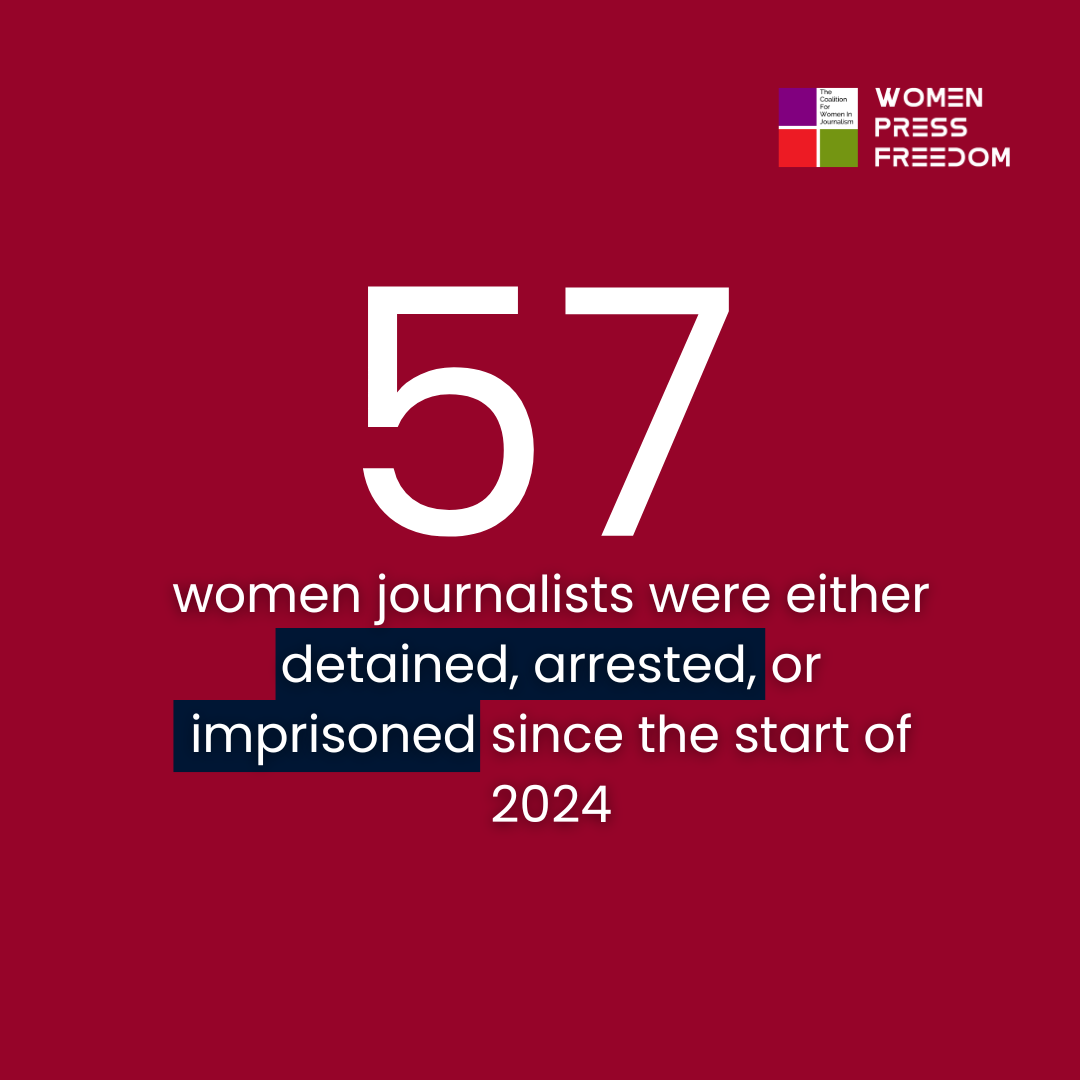On World Press Freedom Day, Explore the Data of Women Journalists Behind Bars
Delve into detailed records that illuminate the alarming number of arrests, detentions, and imprisonment; the harsh conditions they endure, and the courageous stories behind each statistic
May 3, 2024
Governments worldwide have found the most insidious tool to silence journalists. On Press Freedom Day, we at Women Press Freedom would like you to pay attention to this dangerous press freedom trend of our time: the alarming increase in journalist imprisonments this year.
When journalists are silenced behind bars, it represents a severe form of censorship, undermining the fundamental principles of press freedom. We are documenting a trend that highlights the growing risks journalists face worldwide but also underscores the urgent need to safeguard their ability to report freely and without fear. As cases of journalists being detained continue to rise, so does the threat to free speech and democracy globally. We cannot overlook the significance of these imprisonments, as they serve as a stark reminder of the dangers journalists encounter in their pursuit of truth and accountability.
Our data shows how imprisonment is becoming a widespread campaign around the globe not only in anti-democratic governments but also in democracies.
Killings, Life Sentences, and Arbitrary Detentions in 2024
In 2024, a sharply divided global landscape has become increasingly worrying for journalists, with escalating threats. Just this year, Tahira Nosheen Rana was brutally killed in Pakistan, and Israel killed Hiba al-Abadla and her daughter Judy, Alaa Hassan Al-Hams, and Angham Ahmed Adwan in shelling on Gaza.
As of April 2024, the landscape for women journalists remains grim with numerous cases of detention and imprisonment across various regions. 92 women journalists are currently behind bars, some for decades, others awaiting potential death sentences. 57 journalists were either detained, arrested, or imprisoned since the start of this year.
Journalists face both legal and extrajudicial detentions, often under dubious charges. For example, in Canada Brandi Morin in Canada was charged with obstruction during her reporting on a police raid, while in Azerbaijan, a group raid at Toplum TV resulted in the detention of several journalists without clear charges.
In some cases, journalists are given disproportionately harsh sentences, such as Shin Daewe in Myanmar, who received a life sentence, indicating a severe punitive approach to silencing media under authoritarian regimes.
Arbitrary detentions are rampant, with journalists detained without proper legal procedures. For instance, Kasarahchi Aniagolu in Nigeria was violently apprehended while covering a police raid, showcasing an abuse of power without due process. Many journalists are detained under broad and suppressive laws, often accused of terrorism or endangering security without substantial evidence, as seen in the cases from Russia and Burundi. This tactic stifles critical journalism and dissent.
Women in journalism not only serve as crucial voices but also bring unique perspectives that enrich the news landscape. Their stories, often overlooked or unreported by mainstream media channels, are a testament to their value and the diversity they bring to the table. Their representation in media and safety in journalism is critical to the integrity and diversity of news.
However, the data showing the number of women currently detained, facing harsh conditions, or targeted for their work, is alarming.
Our data provides a snapshot of the ongoing challenges faced by women in the media who are targeted for their journalistic endeavors.
The data starkly reflects not just the abuses these women face but also the broader pattern of gender-specific targeting which includes threats, harassment, and discriminatory treatment before and during imprisonment. This pattern not only silences journalists but also sends a chilling message and dissuades other women from entering the profession.
Explore our data on women journalists currently behind bars:







